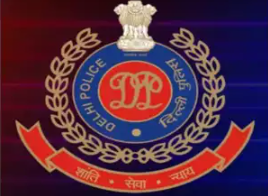Kerala HC grants bail to man sentenced to life in 2010 college professor hand chopping case
Kochi, Dec 13 (PTI) The Kerala High Court has granted bail to the main conspirator in the sensational college professor hand chopping case of 2010 who was convicted and sentenced to life imprisonment by a special NIA court last year.
A bench of Justices Raja Vijayaraghavan and P V Balakrishnan suspended the sentence of convict M K Nasar while his appeal against the NIA court’s decision is pending in the High Court.
The NIA court had found Nasar to be the main conspirator in the case.
The bench noted that Nasar underwent incarceration, at the pre-conviction and post-conviction phases, for over nine years and the fact that other accused, facing the same allegations as him, were earlier imposed with a lesser term of imprisonment and released after having undergone the sentence.
“Additionally, the appeals filed by the NIA against the findings of the sessions judge are being considered in separate appeals, which have not yet been taken up.
“There is also the likelihood of delay, as the prime accused has surrendered, and the sessions judge may have to take up the trial and dispose of it in accordance with the law and some of the original records may be required for that purpose,” the bench said.
The High Court said that in view of these facts and circumstances, it was of the opinion that the sentence imposed on the applicant (Nasar) can be suspended pending the consideration of his appeal.
The High Court granted him the relief subject to the condition that he shall execute a bond for the sum of Rs one lakh and two solvent sureties each for the like amount to the satisfaction of the sessions judge.
The other conditions imposed on him were that he shall not leave the country without the High Court’s permission, will not interfere with the trial or influence the witnesses in the trial in respect of the main accused and not commit a similar crime while out on bail.
The special NIA court had found Nasar guilty of offences under the stringent Unlawful Activities (Prevention) Act (UAPA) as well as attempted murder, conspiracy and various other offences under the Indian Penal Code (IPC) and the Explosive Substances Act in the second phase of the trial in the case.
He was among the six persons convicted in the second phase of the trial in the hand chopping case.
Nasar and two others were given life terms, while the other three convicts were sentenced to lesser jail terms.
In the first phase of the trial in the case, 10 persons were convicted for offences under the UAPA as well as the Explosive Substances Act and the IPC and three others were found guilty of harbouring the offenders.
The right hand of T J Joseph, professor of Newman College in Thodupuzha in Idukki district, was chopped off allegedly by PFI activists on July 4, 2010.
The attack took place while the professor was returning home with his family after attending a Sunday mass at a church in Muvattupuzha in Ernakulam district.
The attackers, a group of seven people, pulled the professor out of the vehicle, assaulted him and then his right hand was chopped off by main accused Savad who is still absconding.
According to the police that initially probed the case, the accused wanted to kill Joseph for derogatory religious remarks in a question paper he set for BCom semester examination in Newman College.
There were 54 accused in the case of which 37 were named in the chargesheet and 31 had faced trial in the first phase as the others were on the run. Charges could not be framed against some other accused as they were not caught.
The special NIA court had commenced the first phase of the trial against the 31 accused in July 2013.
During the first phase trial proceedings, the court had examined over 300 prosecution witnesses, four defence witnesses, over 950 prosecution documents, nearly 30 defence documents, and over 200 material objects before delivering its verdict in April 2015.
The court in April 2015 convicted 10 people for offences under the UAPA as well as the Explosive Substances Act and the IPC and found three others guilty of harbouring the offenders.
The court had acquitted 18 others in the case back then.






